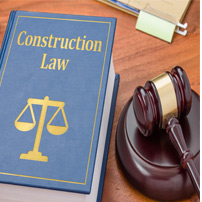 Does a private citizen have the right to litigate a failure to comply with a township land development ordinance when the township, itself, refuses to enforce the ordinance? Such was the interesting question recently decided by the Commonwealth Court of Pennsylvania in the case of Smith, et al., v. Ivy Lee Real Estate, LLC, et al., in an opinion filed June 27, 2017 (No. 111 C.D. 2017), argued June 5, 2017.
Does a private citizen have the right to litigate a failure to comply with a township land development ordinance when the township, itself, refuses to enforce the ordinance? Such was the interesting question recently decided by the Commonwealth Court of Pennsylvania in the case of Smith, et al., v. Ivy Lee Real Estate, LLC, et al., in an opinion filed June 27, 2017 (No. 111 C.D. 2017), argued June 5, 2017.
The Court decided the Pennsylvania Municipalities Planning Code (MPC), specifically Section 617 (53 P.S. §10617), does in fact create a private cause of action to enforce violation of a township subdivision and land development ordinance (SALDO).
Plaintiff, in this case, owned land in Taylor Township, Blair County, Pennsylvania. The Defendant owned the adjacent property. Plaintiff’s Complaint alleges the Defendant has engaged in construction activities on its land that constitute “land development” under the Township’s SALDO. Plaintiff further alleged that Defendant did not submit a land development plan as required by the SALDO and that Defendant’s actions prevent Plaintiff from using certain property and from accessing its property. Therefore, Plaintiff sought injunctive relief preventing any further construction by the Defendant unless it complied with the Township’s SALDO. The Township refused to enforce its SALDO against the Defendant on the basis that Defendant’s activities did not constitute “land development”.
The Blair County Court of Common Pleas opined that Section 617 of the MPC creates a private cause of action but only for zoning violations, and not for land development issues. Since Taylor Township does not have a zoning ordinance, no private cause of action exists for the remedy Plaintiff had sought.
Plaintiff contended that language in Section 617 of the MPC permits a private cause of action for a “violation of any ordinance enacted under this Act” and “this Act” refers to the entire MPC, not just the zoning article.[1]
“The issue presented boils down to whether the phrase, ‘in violation of any ordinance enacted under this Act’ pertains to an alleged violation of any ordinance enacted under the MPC or whether it pertains only to alleged violations of any ordinance enacted under Article A, VI of the MPC.” (Opinion, p. 5). The Court held “That the plain language of Section 617 permits a private cause of action to enforce an alleged violation of any ordinance enacted under the MPC, including the SALDO”. (Opinion, p. 6).
The Defendant contended that the Plaintiff is precluded from seeking such private relief by Sections 515.1 and 515.3 of the MPC (See 53 P.S. §§10515 and 10513.3). Defendant took the position that Section 515.1, in dealing with subdivision and land development, authorizes municipalities to bring enforcement actions but does not authorize private citizens to do so. Defendant also argued that Section 515.3 states “Nothing in this Section shall be construed or interpreted to grant to any person or entity other than the municipality the right to commence any action for enforcement pursuant to this Section”.
The Commonwealth Court rejected the Defendant’s arguments thusly:
“While Section 515 states that the municipality may institute an action, this language is not inconsistent with the language of Section 617 which gives individuals the right to bring the cause of action for ‘a violation of any ordinance enacted under this Act.’ Additionally, Section 515.3 is irrelevant because it is limited to civil penalties and has no application to the Smith Family’s (the Plaintiff) private cause of action seeking injunctive relief under Section 617. Moreover, the plain and unambiguous language of Section 515.3(c) applies only to ‘this Section,’ meaning Section 5.15.3, P.S. §10513.3. Thus, the prohibition on anyone other than the municipality bringing an action relates only to an enforcement action seeking civil penalties.”
The final Order of the Commonwealth Court reversed and remanded the matter to the Common Pleas Court to allow Plaintiff to pursue its claim for injunctive relief.
For more information on the services our law firm offers, contact the Media municipal law lawyers at Eckell Sparks at 610-565-3701 or contact us online.
[1] Such was the issue as described by the Commonwealth Court.
